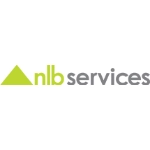© 2025 Next Level Business Services Inc. All Rights Reserved.
How to Explain Gaps in Employment on a Resume
By NLB Services
The reasons for a gap in employment could be many. You might have taken a break to raise your child, take care of a medical condition, for traveling, make some important life changes, or simply be waiting for the right opportunity to knock on your door.
A gap in your resume should never spell doom for your chances of getting a great job. If you are worried about showing that in your resume, we have got some tips and suggestions to fill the dreaded employment gap. We’ll review them here and answer some frequently asked questions about resume gaps and the reasons for a gap in employment.
What are employment gaps on resumes?
Though the term is self-explanatory, technically, an employment gap is considered the period a job candidate was not professionally engaged with a company or organization. The decision can be voluntary or involve external factors for the gap period.
There is no specific tenure that can be regarded as a short or long employment gap, but having a gap of more than nine months can be considered a drawback in the resume.
Why Employers Care About Resumé Gaps
Employment gaps are not a career breaker. Gaps are not even all that concerning when explained with valid and honest reasons. However, when they are left unexplained, recruiters get a little doubtful.
Remember that hiring a reliable, talented, and knowledgeable candidate is an employer’s job. They are highly conscious about avoiding the risk of hiring the wrong employee into the company. Recruiters might refrain from hiring someone who has stale industry knowledge or no knowledge. That’s the reason they are concerned about the gaps in resumes and feel safer in hiring candidates with linear, gapless, long-tenure career histories.
Where to explain employment gaps
When the employer asks for an interview, it should be explained to them with a valid reason. Reasons could be personal or professional, but an employment gap explanation should be honest enough for the employer to believe. We will read about the reasons for employment gaps in our blog further.
Employment gaps should be explained in the cover letter as cover letters are a great place to explain significant gaps in employment. It should be a detailed document describing how you’ve utilized your time during the gap and prepared yourself for the new opportunity. Explaining employment gaps in your cover letter and resume also shows recruiters and hiring managers about your honesty and builds trustworthiness.
Read our full guide – How to prepare for a job interview
List of good reasons for employment gaps
There can be countless reasons behind an employment gap. Those reasons should not hinder your chances of getting employed.
That said, here are some good reasons for an employment gap:
- Family reasons. Family is a super important aspect of human life and companies generally consider reasons related to family life. For e.g. if you took time off to raise your kids, try to explain it to your employer that they’re all grown up and off to school now, and you can take up the job full-time.
- Any prolonged illness you may have suffered that has hindered you from working is a legitimate reason to show a gap in your resume. After explaining it to the employer, mention that you’re recovered and fully able to work again.
- The same goes for an injury. Like with illnesses, serious injuries can make you incapable of work and are perfect reasons to explain an employment gap. It can be supported with medical documents too if the company demands it.
- Failed business: Startup is the buzzword. Sometimes a candidate might be hesitant to mention a failed startup or business initiative as a reason behind the employment gap. But it should not be so. If your startup has failed, you should never hesitate to talk about the same. As long as you can show recruiters how you bounced back, you shouldn’t be hiding the valid reason for it to work out.
- Higher Studies: If you have taken a leap for gaining knowledge, and took a break from work, you should not hesitate to mention that on your resume or during the interview.
How to explain employment gaps on your resume
#1. Be honest
Be honest about your employment history. Write the right things on your resume. It’s important to understand that potential employers will ask about your employment gap especially if it is a lengthy one and more than a year or more recent. Trying to hide it will only damage your candidature and give recruiters even more reasons to believe you have something to hide. So, be honest to explain the gap in the resume. Reasons could be family-related, studies, or any medical issues.
#2. Remove the Employment Gap (If It’s Outdated)
You can safely delete the gap if it is very old and irrelevant. Say, for example, if your employment gap is mentioned from 10 years ago, you can delete it from your resume especially if you’re a seasoned professional. Which implies you do not even need to mention that in your resume. To make your resume more relevant, delete the unnecessary information and make it a one-pager for easy understanding.
#3. Focus on the qualifications that make you a good fit for the job
Highlighting the skills and knowledge you have acquired during the gap is a great way to brush up on past employment gaps. It will give employers a sense that, while you were not in a regular job, you were acquiring some knowledge and were constantly gaining some skills. Skills that you might be using in the future job. Try to explain any gaps in employment by showing them the certifications you’ve done in the gap period (if applicable).
#4. Be prepared to speak about the gap during an interview
Do not hesitate to talk about the gap you’ve taken during your employment. Reasons can be your illness, studies, or family reasons. Talk openly about the same with the recruiter. Providing a valid reason to HR can make them understand if it is genuine or not. Also, do not hesitate to mention the gap year in your resume and the activities you have done during the gap period. You can always support your answer with the things you have learned during the gap year and how they can create a difference in the new company. You can mention the skill sets you are a novice in and tell them that with experience, you will master them.
#5. Show that you’re ready to rejoin the workforce
It’s ok to have a gap in the resume. But, the reason you’ve applied for a job implies you are ready to take up the new opportunity. Therefore, show your enthusiasm towards taking up new responsibilities from an employer. Show the employer that the gap is over and you are searching to start the job again with full enthusiasm when you have upgraded your skills during the gap years.
#6. Don’t worry about every gap
As we mentioned earlier, if the gap is from 10 years ago, it should simply be omitted from the resume. Not every gap should be mentioned in the resume. Only include the one that is necessary. Worrying about the gap year is not going to help in any manner but giving confidence to the employer on how you improvised during that gap year will do. Do not hesitate to showcase a certificate (if available) of any skill that you have added during the gap year.
#7. Show That You Never Stopped Learning
Highlight the skills, knowledge, and certifications (if any) you have acquired during the gap durations. Show the employer that you were not working full time, but you’ve utilized the time very well and gained knowledge for your career growth which can be useful for your employment journey. Talk about how it will help in the future.
Conclusion
An employment gap can hinder your career path only when you fail to state the proper reason for the same.
So, while you apply for an interview, make sure that your confidence is high and you are ready to answer any question asked related to it.
Best of luck!
Talent Solutions








